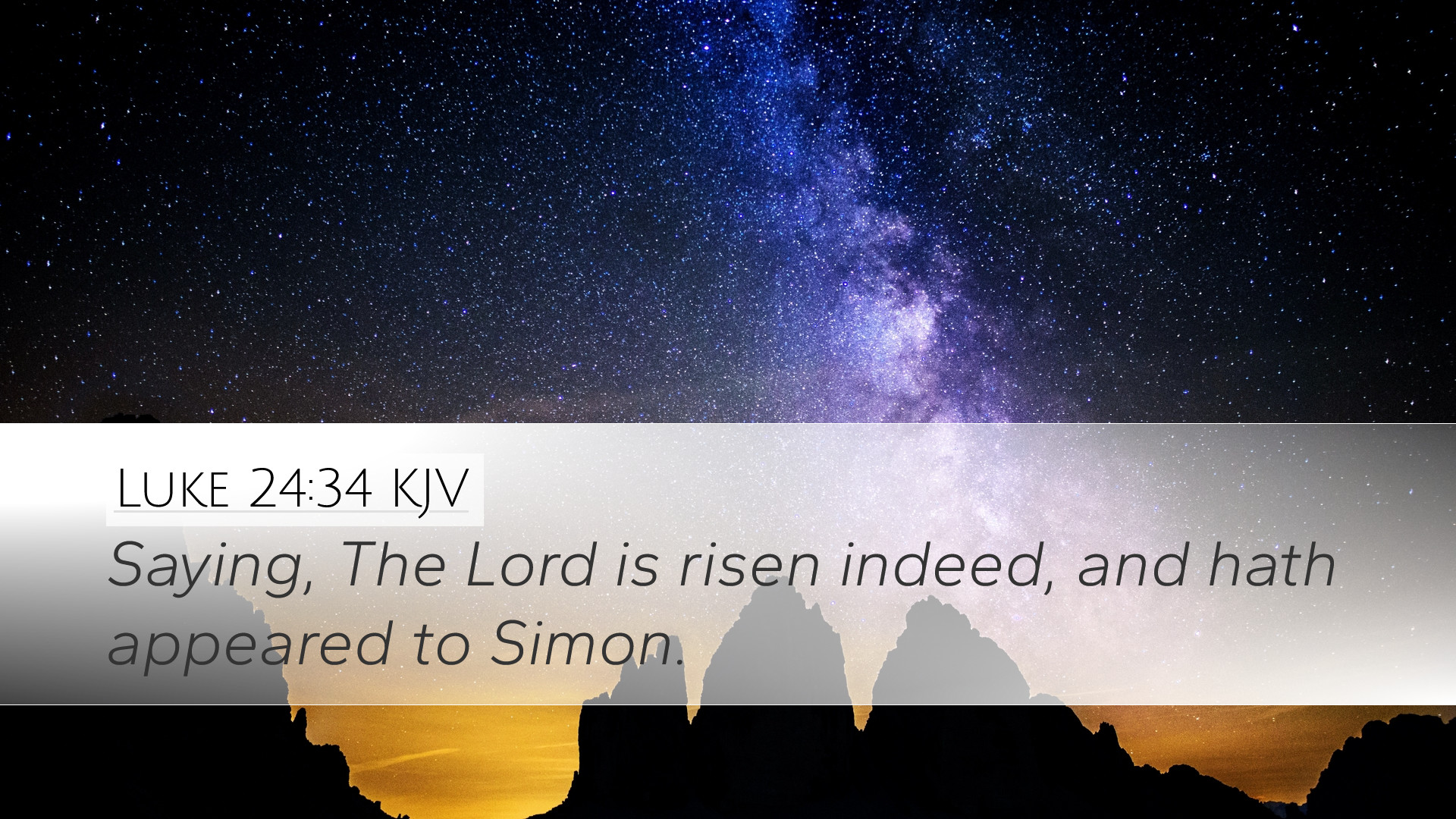Old Testament
Genesis Exodus Leviticus Numbers Deuteronomy Joshua Judges Ruth 1 Samuel 2 Samuel 1 Kings 2 Kings 1 Chronicles 2 Chronicles Ezra Nehemiah Esther Job Psalms Proverbs Ecclesiastes Song of Solomon Isaiah Jeremiah Lamentations Ezekiel Daniel Hosea Joel Amos Obadiah Jonah Micah Nahum Habakkuk Zephaniah Haggai Zechariah MalachiVerse
Luke 24:1 Luke 24:2 Luke 24:3 Luke 24:4 Luke 24:5 Luke 24:6 Luke 24:7 Luke 24:8 Luke 24:9 Luke 24:10 Luke 24:11 Luke 24:12 Luke 24:13 Luke 24:14 Luke 24:15 Luke 24:16 Luke 24:17 Luke 24:18 Luke 24:19 Luke 24:20 Luke 24:21 Luke 24:22 Luke 24:23 Luke 24:24 Luke 24:25 Luke 24:26 Luke 24:27 Luke 24:28 Luke 24:29 Luke 24:30 Luke 24:31 Luke 24:32 Luke 24:33 Luke 24:34 Luke 24:35 Luke 24:36 Luke 24:37 Luke 24:38 Luke 24:39 Luke 24:40 Luke 24:41 Luke 24:42 Luke 24:43 Luke 24:44 Luke 24:45 Luke 24:46 Luke 24:47 Luke 24:48 Luke 24:49 Luke 24:50 Luke 24:51 Luke 24:52 Luke 24:53

